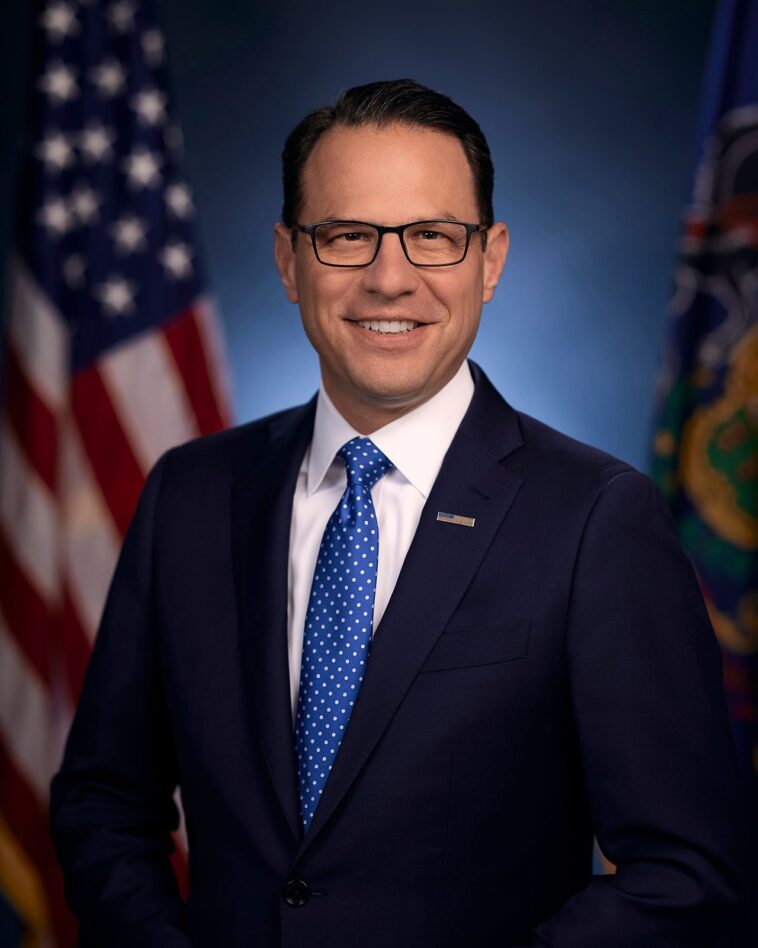The 2024 election serves as a significant point to reflect upon. Pennsylvania Governor Josh Shapiro may well owe a debt of gratitude to Tim Walz for inadvertently paving the way for his career. The selection of Walz as Kamala Harris’ running mate, quite possibly spared Shapiro from stepping onto a failing vessel, as a new book divulges.
Harris’s choice of VP seems less about a strategic and effective governance partner, and more about finding someone who would not intimidate her position. Shapiro’s encounter with Harris at her home on August 3 was less than productive. The book paints a picture where Shapiro’s ambition was viewed as a threat, when in reality, it was prudent caution about a role that could define or ruin his political trajectory.
This incident exemplified one of the critical flaws of the Harris campaign: the prioritization of unwavering loyalty over skill and competence that could potentially eclipse Harris’ position. The narrative that Shapiro was overly pro-Israel and thereby unsuitable for the candidate line-up is disproven by the book’s authors.
Ironically, Shapiro’s standpoints were more in sync with the Biden administration and other VP contenders. The simple yet pivotal issue was that Shapiro could not be manipulated as a pawn in their political game. When he communicated further concerns post-interview about sacrificing his governorship, his apprehension was more a proper realization than simply getting cold feet.
It’s an intriguing thought to imagine how the political landscape would look today had things progressed differently. Shapiro, however, has been strategically building his own political reputation, independent and uncompromising. The Energy and Innovation Summit showcased his refusal to take a side-seat, with his determined efforts to secure substantial energy funding for Pennsylvania’s financial future.
No stranger to relevance, Shapiro’s earlier involvement in the Hawbaker case earned him significant credibility. His successful pursuit of a company that fraudulently obtained $20 million from workers, demonstrates his commitment to less fortunate citizens. A crucial aspect that the Harris election ticket might have benefited from.
Despite being only 51, Shapiro held a certain level of moderate appeal that could’ve offset the portrayal of Harris as a radical liberal. His persuasive eloquence was likened to that of Barack Obama, albeit with some derogatory undertones of mimicry. Recent attempts to distance himself from undue comparisons have been noted in both his public appearances and social media posts.
Along with the challenge of overcoming the inescapable Obama comparisons, Shapiro faces his own battles. For instance, his decided penchant for footwear lifts at the energy summit courted speculation about his physically diminutive stature. Even at approximately 5’6′, he would be the shortest president since James Madison.
Shapiro’s proclivity for secrecy has raised eyebrows, from his email deletions and covert climate working groups to his expenditure of $350,000 of public funds on private law firms with heavily edited invoices. Despite the potential backlash, these are issues that could be rectified for a politician keen to design his own political path.
Had Shapiro succumbed to the allure of joining the Harris ticket, he would forever be associated with a campaign that failed to acknowledge its mistakes. When failure is passed off as the result of an abbreviated timeline and global inflation—never owning up to self-made blunders—it’s a precarious position to be in.
Interestingly, the book shows that Shapiro was the competitor that the rival campaign found most intimidating. In one instance, a Pennsylvania farming family, slated to host the governor for Harris’s VP announcement, retracted their offer upon discovering that the chosen candidate was not Shapiro.
Not all opportunities are blessings in disguise. The decision to not accept a job offer, at times, can be the most astute career move. Shapiro exhibited an admirable level of self-respect, questioning the status and having the political acumen to recognize a weak deal. His decision allowed him to sidestep a political catastrophe.
In their zeal for national resurgence in 2028, Democrats might find it wise to express appreciation for Shapiro’s practical sense, which helped him dodge the political blunder of hitching to a sinking ship named Harris. His tactful navigation ensures he is no mere footnote in history, but a looming figure with untouched potential.
The Biden and Harris administration, committed to a narrative of evading responsibility for their actions, stands in stark contrast to the Governor. Emerging as a character of substance, Shapiro wonderfully portrays the importance of knowing your worth, asking vital questions about your career, and not settling for being a silent accessory.
In contrast to the Biden administration’s preference for servility, Shapiro embodies the spirit of autonomy and self-direction. Such values are of paramount importance for anyone who seeks to effectively govern and lead, rather than simply be a figurehead at the whim of others.
The Biden and Harris era could stand as a stark reminder to politicians everywhere of the dangers of misplaced loyalty over competence and effectiveness. Future contenders might do well to remember Shapiro’s brave stand and adapt their strategies accordingly. Shapiro’s decisions remain a testament to having political sense and the courage to make difficult decisions for the greater good.


GIPHY App Key not set. Please check settings